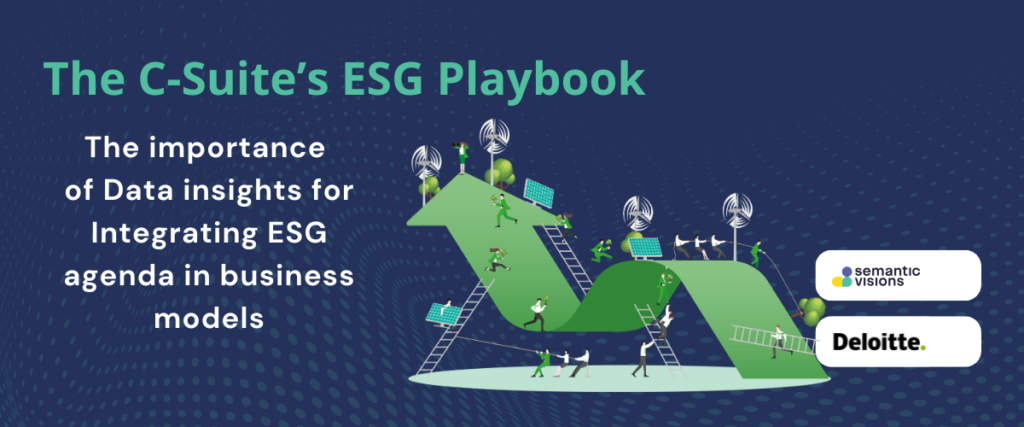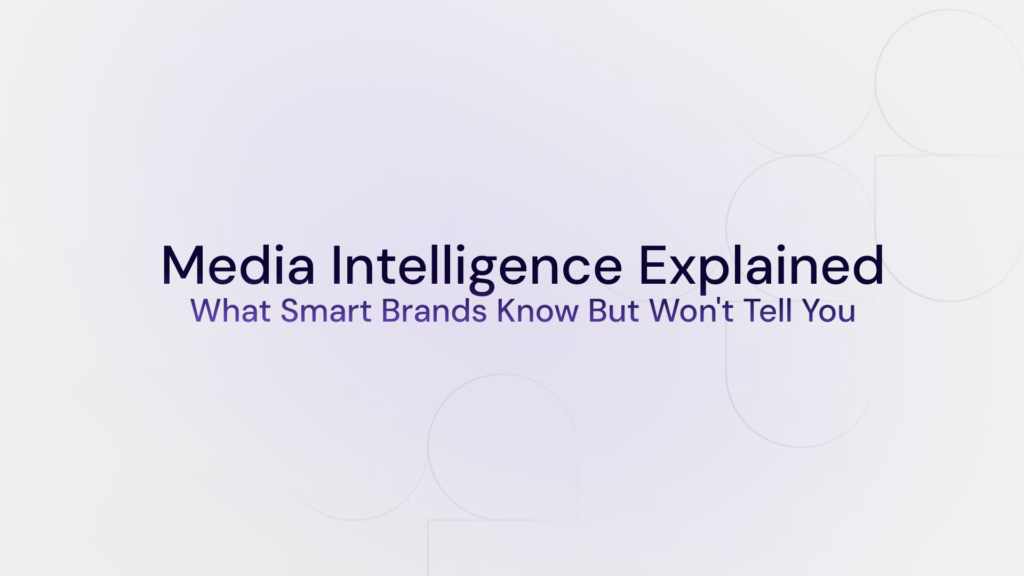4 min read
ESG as a Strategic Advantage: Expert Insights from Semantic Visions and Deloitte

The recent webinar hosted by Semantic Visions and Deloitte brought together C-suite leaders from banking, financial services, and manufacturing sectors to discuss the evolving role of ESG in driving long-term business growth.
During the session, speakers Lukas Gabor, PhD, Julius Rusnak from Semantic Visions, and Michal Petr from Deloitte explored how ESG has become not just a regulatory obligation but a strategic lever for competitive advantage.
The Basics and Beyond
ESG defines how businesses align with sustainability and responsibility. Each pillar offers key insights:
- E for Environment: Evaluates pollution, energy use, and climate action.
- S for Social: Focuses on diversity, privacy, and workplace safety.
- G for Governance: Covers ethics, leadership, and board practices.
Interest in ESG is surging due to global regulations, spanning the EU, North America, China, Southeast Asia, and South America. These rules, such as the EU’s Corporate Sustainability Reporting Directive (CSRD) and Germany’s supply chain due diligence law (Lieferkettensorgfaltspflichtengesetz, LkSG), require companies to monitor their suppliers and ensure compliance. Beyond regulations, ESG brings tangible benefits, including improved capital access, better risk management, and enhanced brand reputation.
How Semantic Visions Supports ESG Efforts
Semantic Visions addresses ESG challenges with real-time data solutions, empowering companies to:
- Detect risks in supply chains beyond the first tier.
- Benchmark ESG performance and track trends.
- Support compliance with frameworks like CSRD.
The platform helps identify specific ESG weaknesses, such as labor rights violations impacting social scores, and provides actionable insights to mitigate risks. With over 13 years of expertise, Semantic Visions offers data-driven tools to meet regulations, enhance sustainability, and build resilience in today’s ESG-focused world.
ESG in 2025: Adapting for Impact
As 2025 approaches, ESG strategies are set to evolve, driven by regulatory changes and shifting priorities. Businesses must navigate these dynamics to future-proof their operations and remain competitive.
Beyond the “E”: Balancing Priorities
While environmental issues dominate today, companies must elevate focus on the social and governance aspects of ESG. Labor practices, diversity, leadership ethics, and decision-making frameworks will require equal attention to ensure comprehensive and resilient strategies.
Data: The Cornerstone of ESG
Effective ESG relies on accurate, data-driven insights. Moving beyond self-reported metrics to include external datasets enables more objective decision-making and compliance. With improved data, businesses can reassess commitments, refine goals, and better navigate regulatory pressures like the EU’s CSRD.
Leadership’s Role
C-suite leaders are critical in embedding ESG into company culture and strategy. By aligning ESG goals with broader business objectives, leadership can drive meaningful, long-term change while balancing external regulations with internal innovation.
Technology as an Enabler
AI and other advanced technologies streamline ESG efforts by enabling faster data analysis and operational efficiencies. However, these tools must be deployed thoughtfully, with accurate inputs and clearly defined use cases to avoid reliance on incomplete insights.
Building an ESG Culture
True transformation requires ESG to be a core part of business culture, not an add-on. This includes fostering collaboration across supply chains and supporting smaller partners in meeting sustainability goals to ensure industry-wide progress.
The Path Forward
Consistency, data integrity, and long-term planning will define ESG success in 2025. By leveraging technology, empowering leaders, and embedding ESG into their DNA, businesses can turn regulatory challenges into opportunities for sustainable growth.
ESG and Its Integration in Business
Michal Petr, an ESG and technology expert at Deloitte, highlights the growing importance of ESG in shaping sustainable business practices and meeting regulatory demands.
The CSRD now mandates ESG reporting for EU-listed companies. From 2025, it extends to ~50,000 companies with over 250 employees or €40M revenue. Future compliance includes non-EU firms operating within the EU.
Accurate ESG reporting requires robust data integration, breaking silos between energy, resource management, HR, and other systems, outlines Michal Petr. Automation and AI streamline reporting, improve efficiency, and support decarbonization strategies, such as optimizing logistics or enhancing supply chain sustainability.
Key challenges include limited data availability, political barriers, and short-term priorities. However, ESG compliance is essential for regulatory alignment, reducing risks, and meeting investor and consumer demands. Businesses embracing ESG see it as a pathway to long-term resilience and growth.






